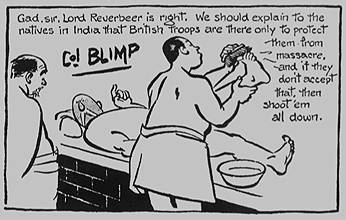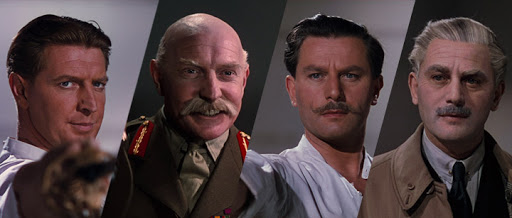In 1943, the top three box office hits in the UK were In Which We Serve, Casablanca and Colonel Blimp. By chance I saw the latter two on the same day which gives a chance look at what audiences sought during the pivotal year of the war.
Casablanca has been analysed to within in a frame of its length and survives it all. The classic Golden Period production line by the numbers film that defies dissection. It just works. I originally watched on the big screen and despite being basically a one set stage drama, its never trapped in its setting. It’s the classic male wish fulfillment of finding the one that got away again, and the impossibility of that dream in practice. Love, loss and sacrifice.
In many ways Casablanca resembles Hamlet in now seeming to be a collection of quotations, especially in the final five minutes. Yet the best scene remains the singing of the Marseillais in defiance of the Nazis. In the cinema the effect is electrifying and I felt like standing up and joining in. What must it have felt like in 1943. The song mostly sung by people who had escaped the Nazis, and its reported that the actors cried whilst singing it. That feeling of defiance remains.
The Life and Death of Colonel Blimp is also concerned with the one that got away as a major subplot , only its more a running gag as Blimp does keep looking for a version of a past love he gave up to his German rival. Martin Scorsese has ensured that the original full length version in its technicolour glory can now be viewed and not the bastardised 90 minute version I previously watched (and wondered why it was considered great). It is long and in places almost ponderous, in particular the duelling scene with its meticulous setting up and no duel. Only there’s a method in it, the duel brings the soon to be lifelong friends together. There’s an excellent review here which goes through the film in depth.
David Low’s Colonel Blimp was a bombastic cartoon character, but apart from the Roger Livesey’s appearance and the Turkish bath, nothing remains of the caricature.

Instead it’s an attack on fighting the war against the Nazis using gentlemanly rules, with Blimp gradually finding himself left behind. Yet he’s never ridiculed: being fundamentally ‘decent’ was still how the British saw themselves even as the gloves came off. (I grew up in a world that still considered U boats cowardly!)https://deepfocusreview.com/definitives/the-life-and-death-of-colonel-blimp/

